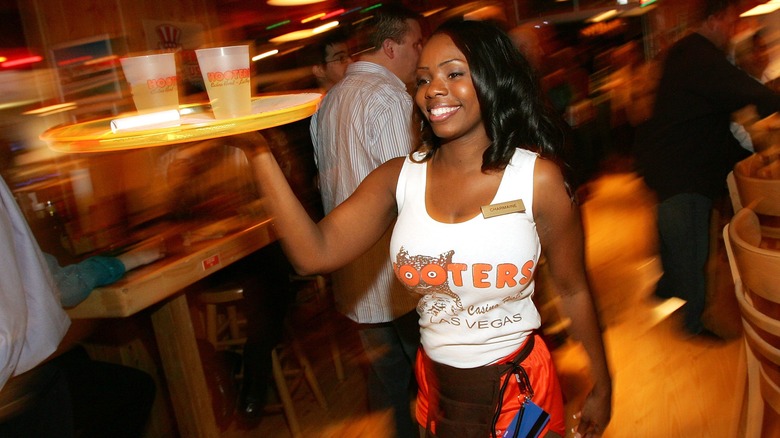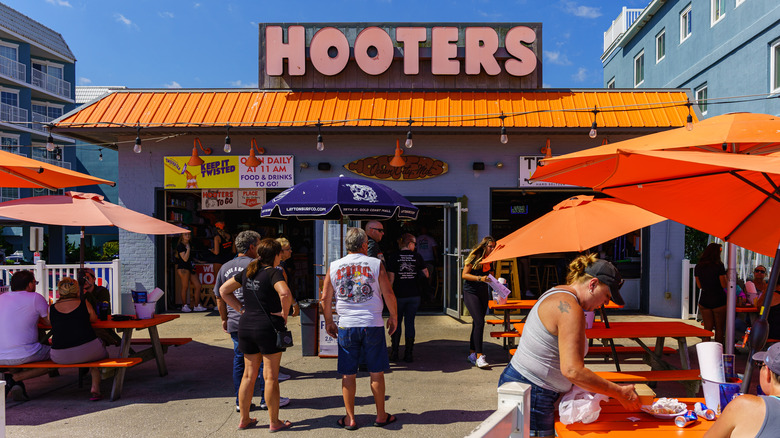The Strategic Decision That Helps Restaurants Like Hooters Stay In Business
It's no secret that certain things in society don't age well. Though younger people question their existence and shy away from them, these curiosities can still appeal to older generations. While comedy is often cited — what was funny in the '70s is not always knee-slapping hilarity by today's standards — the same phenomenon occurs in dining.
The Tilted Kilt, Twin Peaks, and, of course, Hooters are all establishments that have carved out a niche that seems to be a little antiquated by today's standards. Curiously, they don't offer unique, artisan cuisine. Instead, these restaurants serve basic American pub fare or comfort food that you can find at these restaurants. What makes these establishments stand out isn't the food; It's the atmosphere and the servers' uniforms. Or lack thereof.
Rather than battling to be accepted in up-and-coming areas populated by younger people (who might have more expanded and inclusive views about gender and sexuality), Hooters has decided to focus on the older population. Specifically, the chain is expanding in retirement communities. And that strategy is working. While other chains are struggling, Hooters is opening new restaurants in Florida and Nevada.
By comparison, the first Tilted Kilt opened 20 years ago in Las Vegas. It hasn't been around long enough to rely on nostalgia. As a result, a few years ago, the franchise had 80 restaurants across the country. Now, only a little more than a handful remain open.
Why Hooters strategy is wise
Nostalgia differs from generation to generation. A boomer probably isn't going to be sent down memory lane for the same reasons as a millennial. However, if a company can offer a product or an experience that brings a surge of joyful optimism and remembrance of better days, it's going to bring in revenue from its targeted demographic.
Believe it or not, Hooters has been around for 40 years. If you were of drinking age when the first restaurant was built in Clearwater, Florida, that puts you close to retirement age. It also means when you were young, the drinking laws were much more lenient — "zero tolerance" laws didn't exist before the '90s. All of this contributes to the chain evoking positive "glory days" memories, which make older customers feel a potent nostalgic twinge. Another reason this strategy works relies more on the servers than the restaurant: Older generations tend to tip better. That makes these locations great for the workers and the customers.
On the other hand, Twin Peaks is employing a different business strategy. Instead of targeting older customers, this much younger franchise (founded in 2005) is focusing on atmosphere, quality food, and overall customer experience. This plan seems to be working, as Twin Peaks expects to double its footprint over the next five years.

